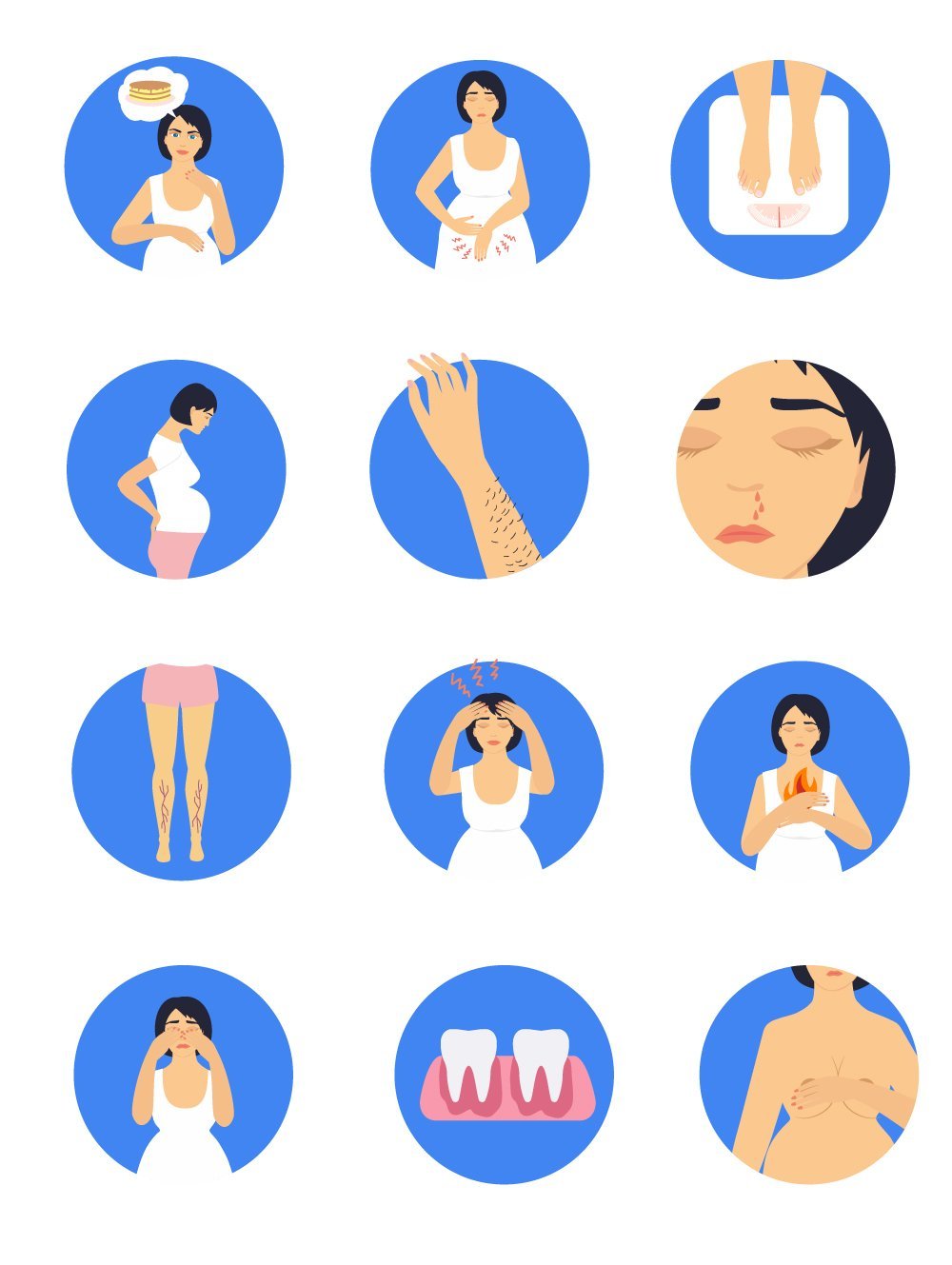
Menopause Brain Fog is real: A Simple Guide with Symptoms and Treatment
Menopause Brain Fog is real: A Simple Guide with Symptoms and Treatment Women in their 40s and 50s who are just entering the end of

They say there is no better feeling than the movement of life inside of you and that is the most magical thing about the second trimester of pregnancy. You can feel the life inside you.
By the second trimester, you probably are more used to all the changes you have been experiencing the last 12 weeks. So let’s have a look at what’s in store for the next 13 weeks of your pregnancy.
If you haven’t read our blog on the First Trimester yet, we’d suggest you start there and then hop back to this.
When does the second trimester of pregnancy start?
The second trimester of pregnancy starts at the beginning of week 13 and goes up all the way till the end of week 26.
So, what changes happen to the body during the second trimester?
Breast tenderness reduces, nausea begins to cease, and adjustment to estrogen and progesterone levels occurs. Other changes that happen to your body are:

Sounds a bit scary doesn’t it? But do not worry, it’s a few weeks of hardship for a lifetime of happiness. As soon as you see your little one’s face, all the hardship will be forgotten in seconds.
It is important to note that these symptoms may or may not be experienced by all women, and the severity, occurrence and duration of these changes can change from woman to woman.
So, what changes does the baby go through?
It is said that the second trimester of pregnancy marks a changing point not only for the mother but for the baby too. This is when the fetus grows into a baby. All organs and systems are fully formed by the second trimester. During the second trimester, your baby will grow from around 7.5cm and weigh 30 grams in the 13th week to approximately 23cm and 820 grams by the end of the second trimester. Their heart moves 100 pints of blood a day. During the second trimester, the fetus begins to move and starts kicking. The mother can feel this, and it is known as quickening and trust me, this feeling is unmatchable.
The baby grows eyelashes and eyebrows during the second trimester and it’s eyes and ears are formed so your baby can hear your voice when you speak. It is encouraged you speak to them to give them company. Their tiny fingers and toes separate and grow nails too. Development of reflexes such as swallowing and sucking also occurs. The baby starts reacting to external stimuli and starts interacting with the outside world while being inside.
A fetus born at 24 weeks may survive in a neonatal intensive care unit.
If you experience any of the following, please seek medical help urgently.

These are signs that something could be wrong with your pregnancy. You should speak to your VOG doctor as soon as possible if you are experiencing any of the symptoms mentioned above.
The second trimester of pregnancy is the best time to start building your birth plan. To know more about how to create your birth plan, click here. You can also consult a VOG doctor at any time and from the comfort and safety of your home via the oDoc app.
Source

Menopause Brain Fog is real: A Simple Guide with Symptoms and Treatment Women in their 40s and 50s who are just entering the end of

Did you know that gestational diabetes mellitus, also known as GMD, is one of the most common medical complications of pregnancy? What is GMD? Why

Endometriosis No woman looks forward to “that time of the month.” Dealing with nausea, stomach cramps, mood swings, back pains and fatigue, all whilst facing
இப்போது மருத்துவ குறிப்புகளை உடனுக்குடன் உங்கள் இன்பாக்ஸ் இல் பெற்றுக்கொள்ளுங்கள்.